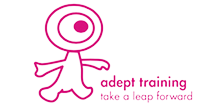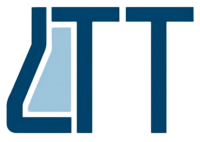
This role has a low level of AI exposure. Core skills such as adaptability, social intelligence, and complex physical tasks remain beyond the capabilities of current AI.
Explore all careersA Phlebotomist collects blood samples, prepares them for testing, and must possess excellent interpersonal skills and attention to detail.
Get qualified to work as a Phlebotomist with a course recognised across Australia. Speak to a training provider to learn more.





In Australia, a full time Phlebotomist generally earns $1,288 per week ($66,976 annual salary) before tax. This is a median figure for full-time employees and should be considered a guide only. As you gain more experience you can expect a potentially higher salary than people who are new to the industry.
 Courses.com.au Team
Courses.com.au Team
The number of people working in this field has increased in recent years. There are currently 9,000 people employed as a Phlebotomist in Australia compared to 7,100 five years ago. Phlebotomists may find work across all regions of Australia.
Source: Australian Government Labour Market Insights
 Courses.com.au Team
Courses.com.au Team
If you’re interested in pursuing a career as a Phlebotomist, consider enrolling in a Certificate III in Pathology Collection. This course will give you the skills to collect blood and other pathology samples. You'll learn to prepare specimens, record them and get them ready for transport.
 Courses.com.au Team
Courses.com.au Team
Browse occupations related to Phlebotomist



For those seeking a rewarding career in the healthcare sector, Phlebotomist courses in New South Wales offer an essential pathway into the vital field of pathology. Phlebotomists are responsible for collecting blood samples for medical testing, and as such, they play a crucial role in diagnostics and patient care. The courses available in New South Wales prepare students with the necessary skills and knowledge to excel in this role and can open doors to various related jobs such as Pathology Collector or Medical Laboratory Technician.
Completing phlebotomy training can provide a strong foundation for those aspiring to enter the medical field, particularly as a Laboratory Technician or a Clinical Research Coordinator. The comprehensive curriculum focuses on both theoretical and practical elements of blood collection, ensuring students are equipped to handle a variety of laboratory procedures and patient interactions with confidence and professionalism. Graduates may also find opportunities in specialised areas such as becoming a Venipuncturist or a Immunologist.
In New South Wales, pursuing Phlebotomist courses contributes significantly to the healthcare workforce, addressing the increasing demand for skilled practitioners in the region's medical laboratories and hospitals. Those who complete these courses can take pride in their role, contributing to essential medical services as they explore further career paths such as Medical Scientist or even Pathologist. With a range of career opportunities available, becoming a phlebotomist in New South Wales signifies a commitment to enhancing patient care within the vibrant healthcare community.